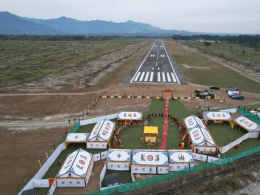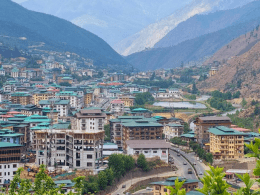India’s active engagement in the Shanghai Cooperation Organisation (SCO) this year is more than a matter of regional diplomacy; it is a signal to the wider world that the voices of the Global South are no longer confined to the margins of power. New Delhi’s approach at the SCO reflects not only its national interests but also a larger leadership mission—to articulate the aspirations, frustrations, and ambitions of developing countries seeking greater equity in global governance.
India as a Balancing Force
The SCO, founded in 2001, has often been seen through the prism of Russia-China leadership. But India’s participation brings fresh energy and balance, particularly as fault lines deepen in international politics. Unlike Beijing’s hard-edged strategic assertiveness or Moscow’s security-driven outlook, India has consistently framed its presence around dialogue, inclusivity, and cooperative development. This year, India’s interventions highlighted issues central to the Global South—food security, supply chain resilience, energy access, climate adaptability, and equitable trade frameworks.
By anchoring these priorities within an organization traditionally dominated by great power rivalries, India has positioned itself as an advocate for those countries whose concerns are often overlooked in global forums. For smaller nations like Bhutan, this is encouraging: it underscores that large regional platforms can still reflect the pressing developmental agenda alongside hard security questions.
Reframing the SCO Agenda
SCO discussions have historically tilted toward counterterrorism and regional security. Yet under Indian influence, there is now greater emphasis on connectivity, digital innovation, and grassroots cooperation. India’s leadership in digital public infrastructure, for instance, has already transformed economies in South Asia and Africa. Sharing these experiences at the SCO helps empower Global South countries with scalable, low-cost models for governance and development.
Equally important is India’s willingness to carve space for climate dialogue within the SCO—an issue that disproportionately affects developing nations. While larger economies focus on geopolitical competition, India’s persistent call for climate-sensitive growth signals a widening of the SCO agenda toward future-facing challenges.
South-South Solidarity in a Multipolar World
For the Global South, India’s assertiveness within forums like the SCO offers a dual benefit. First, it prevents the bloc from becoming a mere instrument of rivalry between China and the West. Second, it creates a channel where developing economies can collectively signal their priorities. India has long argued that multipolarity should not be reduced to the ambitions of a few powers but must instead allow space for “multipolar voices.”
This philosophy resonates with Bhutan and other smaller states. It highlights the possibility of collaborative pathways independent of high-pressure blocs, creating coalitions anchored in shared developmental concerns rather than just security calculations.
Why This Matters for the Global South
In a world increasingly polarized by conflicts—whether in Ukraine, the Middle East, or trade wars—India’s contribution to the SCO this year reinforces a vital message: the Global South is not a bystander but a stakeholder. New Delhi’s calibrated diplomacy demonstrates that institutions can evolve to accommodate development-led agendas, even amidst competing great power interests.
For Bhutan, this is particularly significant. As India amplifies the concerns of the Global South, smaller nations benefit from a stronger collective voice. The SCO, often seen as distant from Himalayan interests, now offers a reflection of regional solidarity and South-South cooperation.
India’s presence at the SCO this year, therefore, is not just about advancing New Delhi’s foreign policy—it is about reimagining global forums as spaces where the Global South asserts agency, shapes outcomes, and builds a fairer international order.








